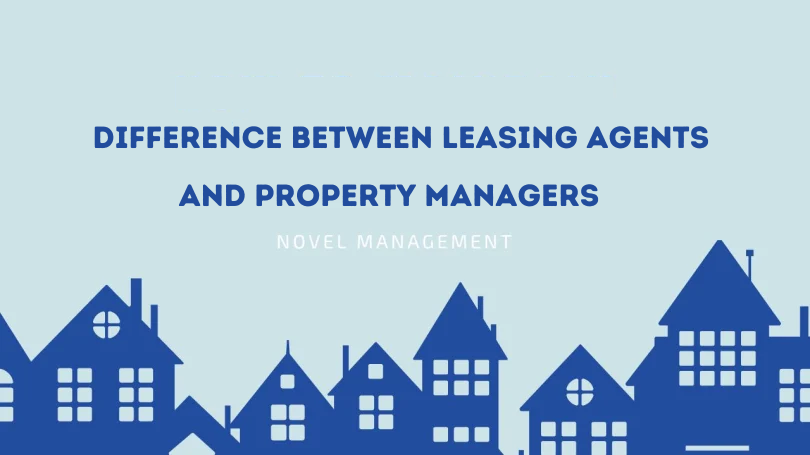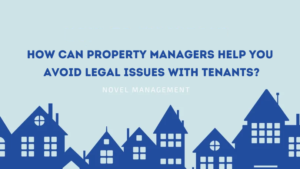In the world of real estate, leasing agents and property managers play crucial roles in managing properties. Both professionals are essential for property owners to ensure efficient operations and profitability. However, while they may seem to have similar responsibilities, there are key differences between leasing agents and property managers that set them apart.
Leasing agents are typically the first point of contact for potential tenants. They are responsible for marketing and advertising rental properties, showing them to interested parties, and screening prospective tenants through background checks and credit reports.
In this article, we will delve into the specific roles and responsibilities of leasing agents and property managers, as well as their distinctions and how they work together to ensure a successful rental experience. Understanding these differences can help both property owners and tenants better navigate the world of real estate. So let’s dive in and explore the difference between leasing agents and property managers!
Introducing Leasing Agents
Leasing agents specialize in connecting tenants with rental properties by serving as the primary representatives of property owners. Their role is centered around marketing available units through advertisements, social media, and listing platforms to attract potential renters. They conduct property tours, highlighting the features and amenities to interested parties, and take applications from prospective tenants.
Additionally, leasing agents are responsible for screening applicants by performing background and credit checks to ensure reliability. By focusing on securing tenants quickly and effectively, they play a vital role in minimizing vacancy periods, ensuring steady rental income for property owners.
Leasing agents also handle lease negotiations, ensuring that the terms and conditions are agreed upon by both parties. Once a lease is signed, they typically hand over property management responsibilities to a property manager.
Understanding Property Managers
Property managers are responsible for overseeing the day-to-day operations of rental properties. They work closely with leasing agents to ensure that the property is well-maintained, and tenants’ needs are met.
Their role includes collecting rent, handling maintenance requests, enforcing lease agreements, and addressing tenant concerns or disputes. Property managers also oversee any necessary repairs or renovations and coordinate with contractors for these tasks.
Additionally, property managers serve as liaisons between property owners and tenants, ensuring smooth communication and resolving any issues that may arise.
Key Differences between Leasing Agents and Property Managers
Here are some key differences between leasing agents and property managers that highlight their distinct roles and responsibilities:
Primary Focus
Leasing agents are primarily focused on the marketing and leasing of properties. Their main objective is to attract potential tenants, show available units, and secure lease agreements. They concentrate on ensuring the units remain occupied to generate revenue for the property owner.
Property managers, on the other hand, focus on the long-term management and maintenance of the property. Their primary concern is ensuring the property operates efficiently while maintaining its value.
While leasing agents deal with short-term goals such as filling vacancies, property managers are tasked with broader responsibilities that encompass both the operational and administrative aspects of property ownership.
Responsibilities
Leasing agents are responsible for creating and implementing marketing strategies to attract prospective tenants. They handle property advertisements, conduct tours, and assist potential renters with applications.
Property managers take on a much wider range of responsibilities. They handle day-to-day operations like rent collection, maintenance issues, and tenant communication. Additionally, they oversee the financial aspects of the property, including budgeting, expense management, and record-keeping.
While leasing agents are mainly concerned with leasing-related activities, property managers have a comprehensive scope of duties that involve both administrative and operational management to maintain the property’s long-term functionality and profitability.
Communication
Leasing agents primarily communicate with prospective tenants. Their focus is on addressing inquiries, conducting property showings, and guiding applicants through the leasing process. Their role is highly customer-facing, requiring excellent interpersonal skills to build positive relationships with potential renters.
Property managers, on the other hand, handle communication with current tenants, property owners, and contractors. They often mediate disputes, address tenant concerns, and ensure owners are kept informed about the property’s performance.
While both roles require strong communication skills, leasing agents prioritize creating a positive first impression for potential tenants, whereas property managers focus on maintaining long-term relationships with tenants and stakeholders.
Timeframe
Leasing agents work on a short-term timeframe since their primary goal is to secure lease agreements as quickly as possible. Their efforts are concentrated on filling vacancies promptly, which requires efficient coordination between marketing and leasing activities.
Property managers, in contrast, operate on a long-term basis. Their work involves maintaining the property’s condition, ensuring tenant satisfaction, and managing ongoing financial responsibilities. The long-term success of a property largely depends on their consistent efforts to uphold its value and functionality.
While leasing agents have a goal-oriented, time-sensitive role, property managers are responsible for implementing sustainable practices and strategies that achieve long-term objectives.
Relationship with Tenants
Leasing agents form initial connections with tenants during the rental process. Their interactions are typically limited to guiding prospective tenants through property tours, lease negotiations, and application approvals. Once a lease is signed, their involvement with tenants often diminishes.
Property managers, however, maintain an ongoing relationship with tenants. They ensure maintenance requests are addressed, enforce lease agreements, and handle renewals or disputes.
The relationship between tenants and leasing agents tends to be transactional and short-lived, while property managers establish a more sustained and service-oriented connection with tenants throughout their residency.
Working Together for Success

The collaboration between leasing agents and property managers is crucial for achieving the overall success of a property. While their roles are distinct, their interdependence ensures that properties remain appealing and functional for both prospective and current tenants. Leasing agents bring new tenants into the property, ensuring occupancy rates remain high, while property managers work diligently to maintain an environment that fosters tenant satisfaction.
Effective communication is the foundation of this partnership. leasing agents focus on property managers to provide accurate information about the property’s condition, policies, and amenities, enabling them to effectively market the units.
By working toward aligned goals, leasing agents and property managers can amplify the property’s success. Together, they ensure that tenants find a home that meets their needs while preserving long-term property value. This cooperative dynamic not only benefits tenants but also strengthens the reputation and profitability of the property as a whole.
Benefits of Leasing Agent
Here are some of the key benefits of hiring a dedicated leasing agent for your property:
- Time-saving: With a leasing agent handling all the marketing and rental processes, property owners can save a significant amount of time and effort. They no longer have to worry about advertising vacancies, conducting property tours, or screening potential tenants.
- Expertise: Leasing agents are specialized in the field of real estate and have extensive knowledge of the local market. They can provide valuable insights and guidance on pricing, marketing strategies, and tenant screening that can benefit property owners.
- Increased occupancy: Leasing agents are experts at filling vacancies quickly due to their experience with effective marketing techniques and connections within the industry. This translates to increased occupancy rates for the property, resulting in higher revenue for the owner.
- Streamlined process: Leasing agents have a streamlined process in place for managing the rental process from start to finish. They handle all paperwork, screenings, and negotiations, ensuring that everything is done efficiently and effectively.
Benefits of Property Manager

Here are some of the key benefits of hiring a dedicated property manager for your property:
- Efficient operations: Property managers oversee the day-to-day operations of a property, ensuring everything runs smoothly and efficiently. They handle maintenance requests promptly, address tenant concerns, and keep track of financial responsibilities to maintain the property’s functionality.
- Cost-saving: Property managers have established connections with contractors and service providers, allowing them to negotiate better prices for maintenance and repairs. They also conduct regular inspections to identify and address any potential issues before they become costly problems.
- Comprehensive knowledge: Property managers have a comprehensive understanding of the property’s operations, including its history, current state, and future goals. This allows them to develop long-term strategies that support the property’s success and preserve its value over time.
FAQs
How does a property management company assist rental property owners?
A property management company handles tasks like property maintenance, screening tenants, and managing tenant relations, ensuring the smooth operation of rental units and maximizing returns for rental property owners.
What role do leasing agents typically play in managing a rental unit?
Leasing agents typically focus on marketing rental units, screening tenants, and ensuring leases are signed efficiently, helping rental property owners secure reliable occupants in the local rental market.
Why is tenant screening important for real estate investment?
Screening tenants ensures that property owners select reliable tenants, reducing risks like unpaid rent or property damage. It’s a critical step in protecting a real estate investment and maintaining the rental unit.
How can property management companies improve tenant relations?
Property management companies foster good tenant relations by addressing concerns promptly, maintaining the rental property, and ensuring clear communication between tenants and rental property owners.
What should rental property owners consider when analyzing the local rental market?
Rental property owners should assess demand, property maintenance costs, and rental rates in the local rental market to make informed decisions that align with their real estate investment goals.
Conclusion
In conclusion, leasing agents and property managers play distinct yet complementary roles in the success of a rental property. While leasing agents bring new tenants in, property managers ensure their satisfaction and maintain the functionality of the property. Their partnership is essential for achieving long-term success and profitability, making it a worthwhile investment for any property owner.
If you are a property owner looking to maximize your property’s success, consider hiring a leasing agent and property manager from Novel Management. Their partnership ensures efficient operations, increased occupancy, and long-term profitability for your rental property. Contact us today to learn more!




